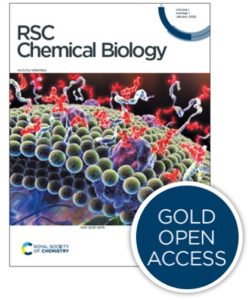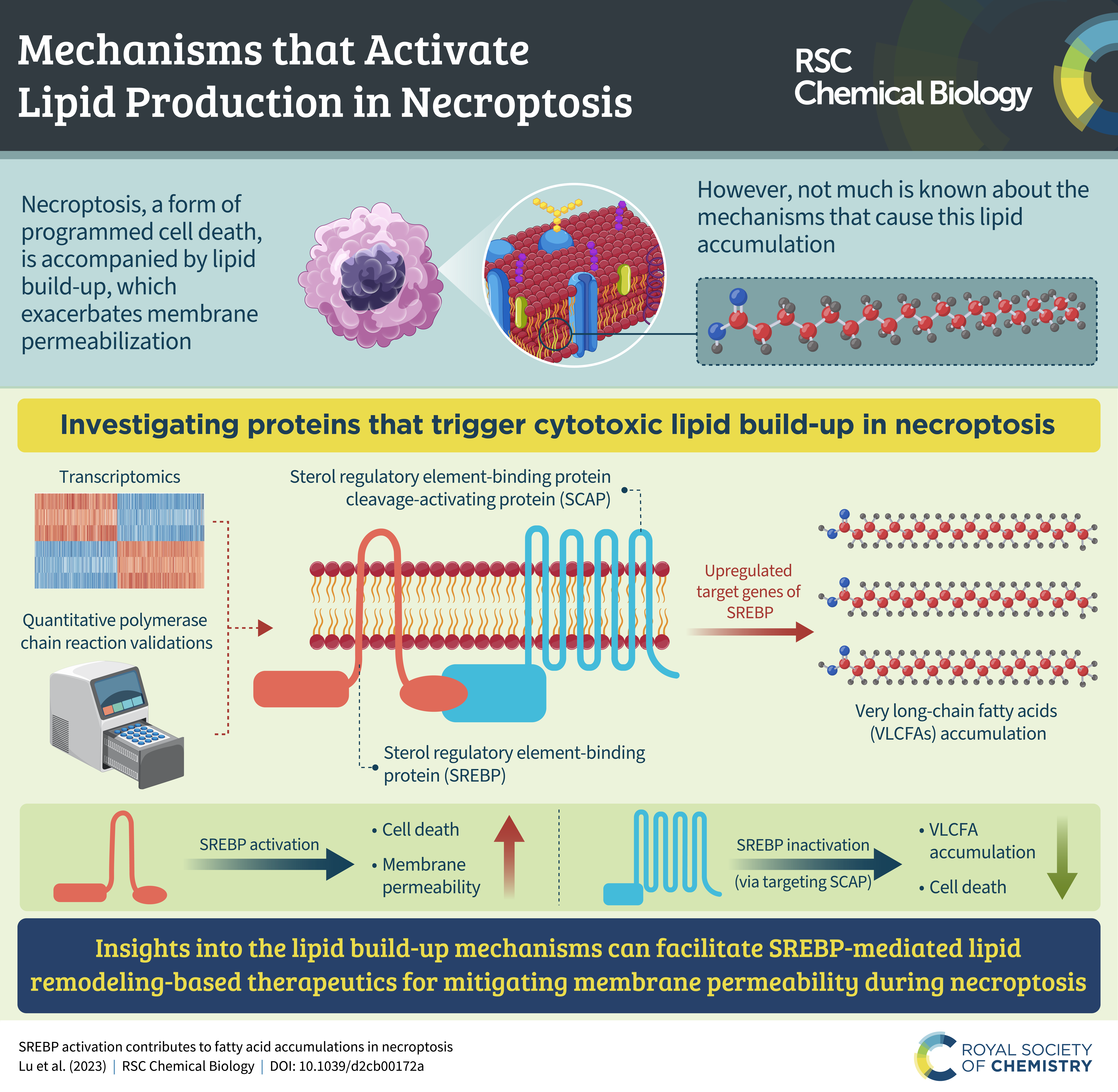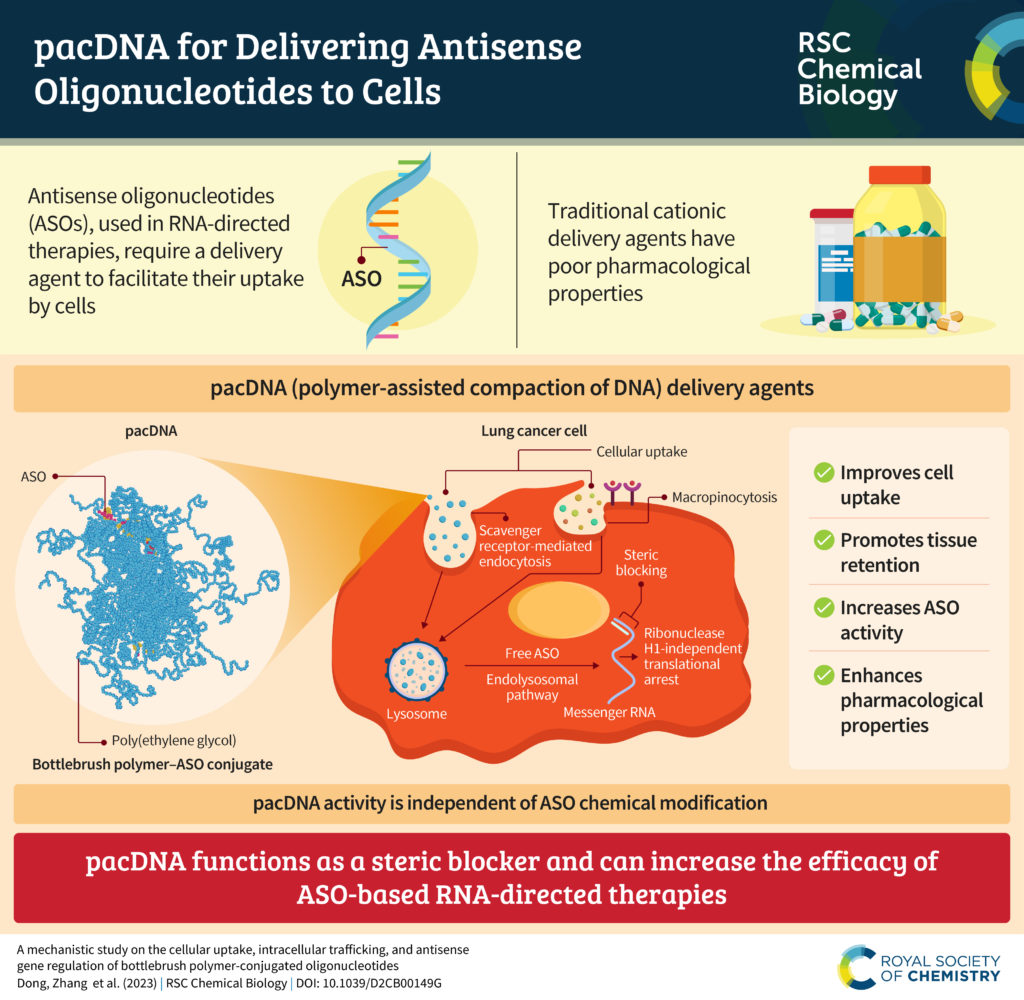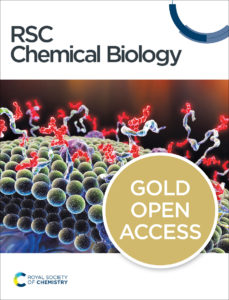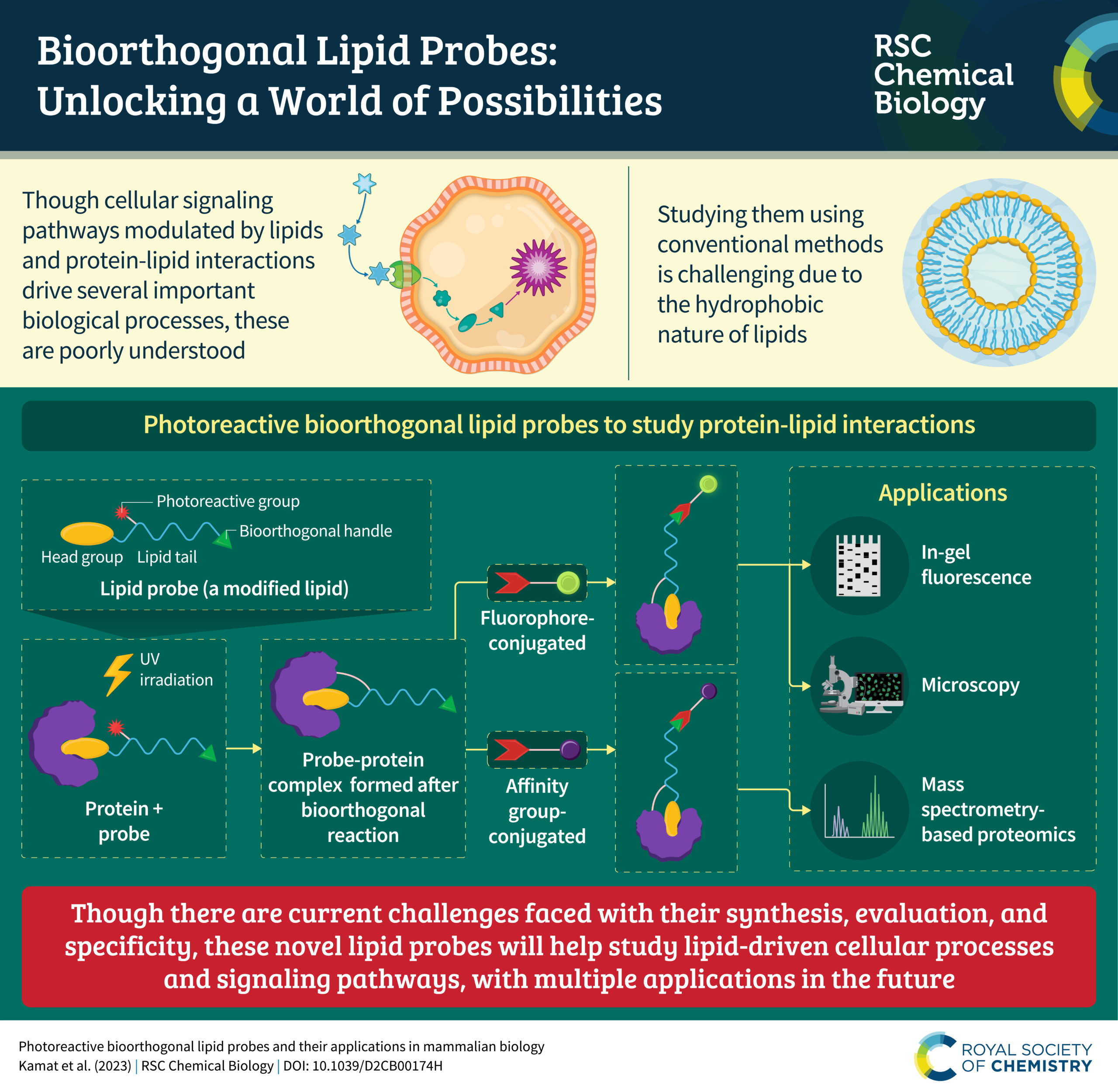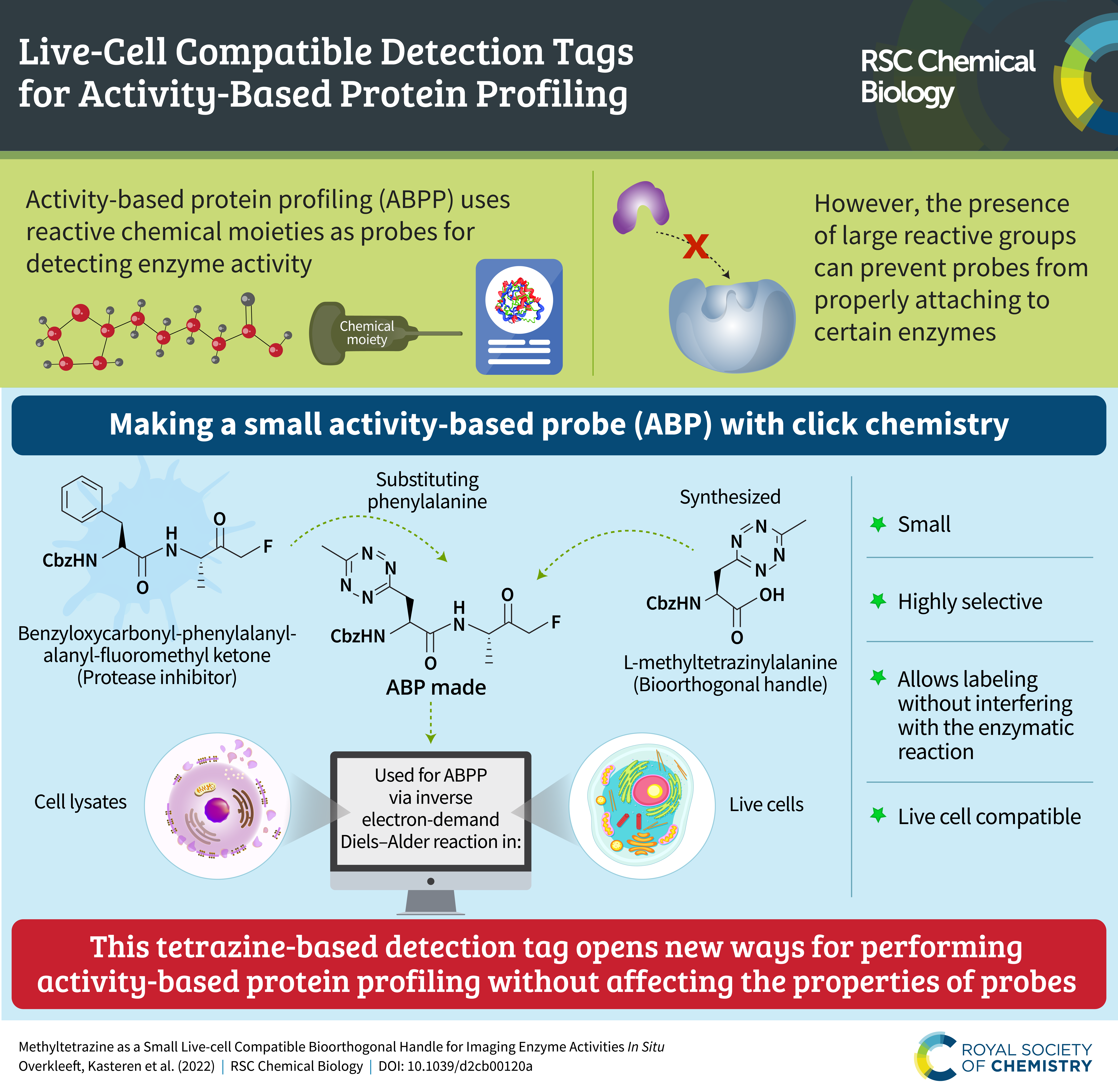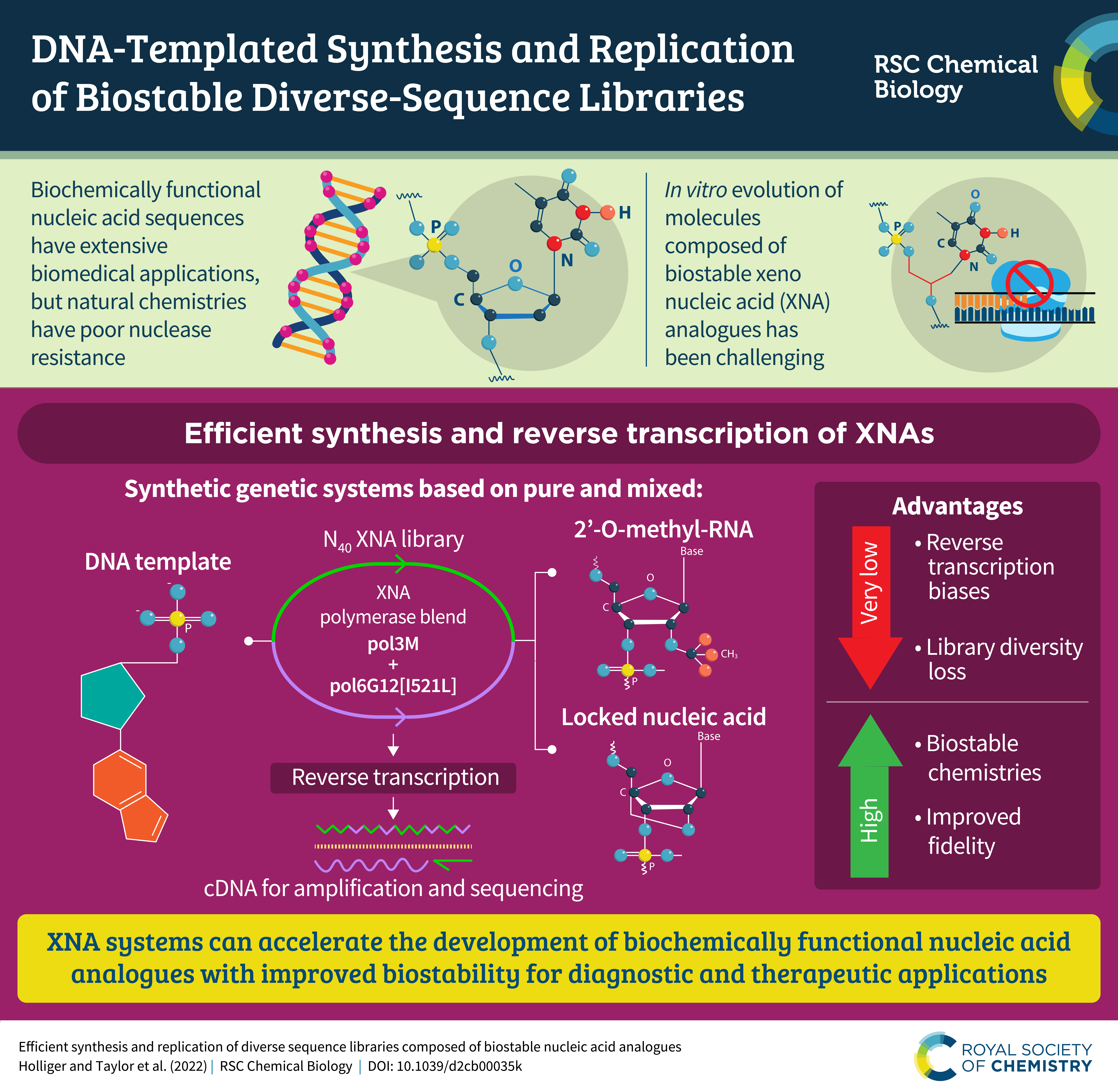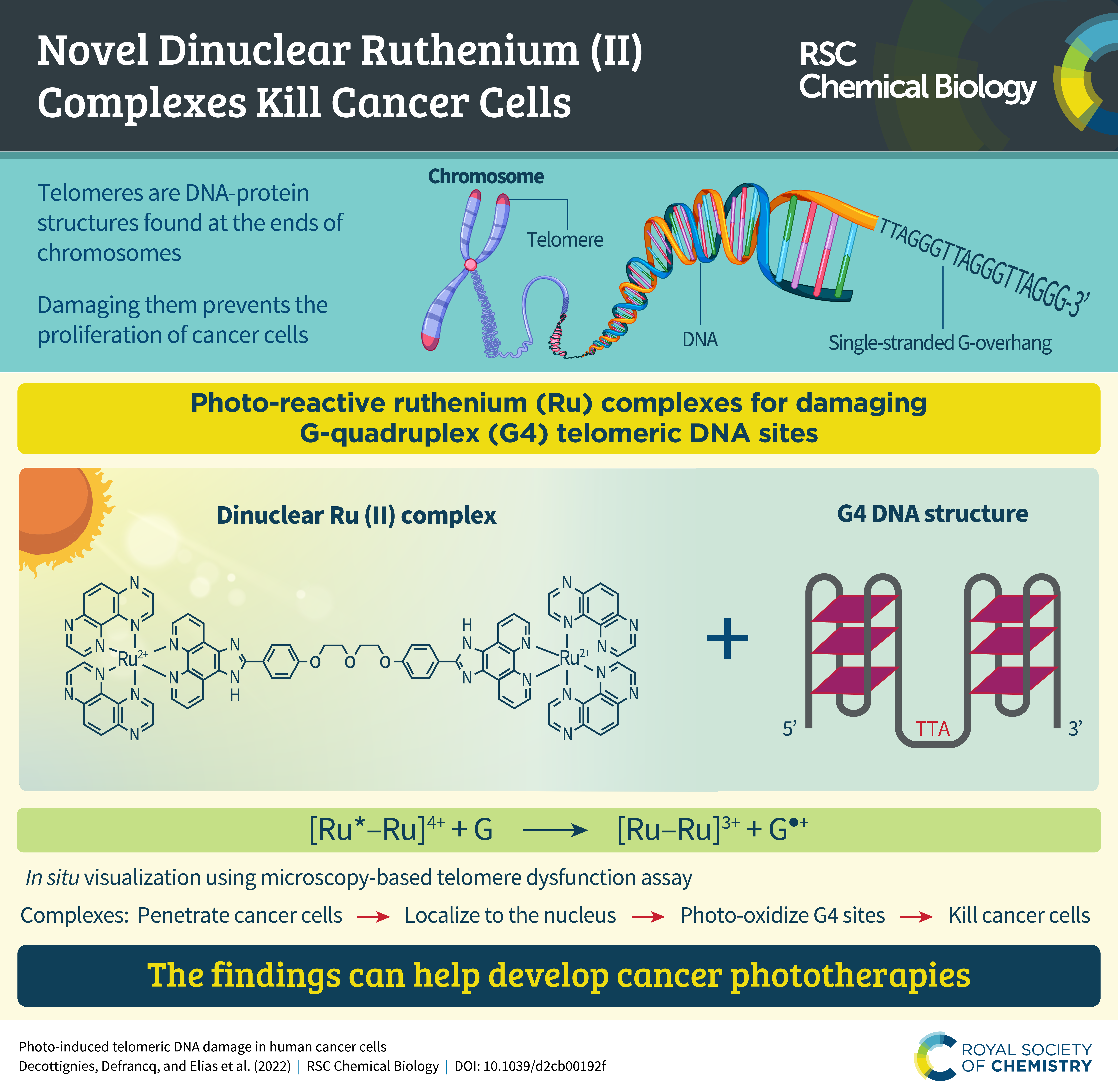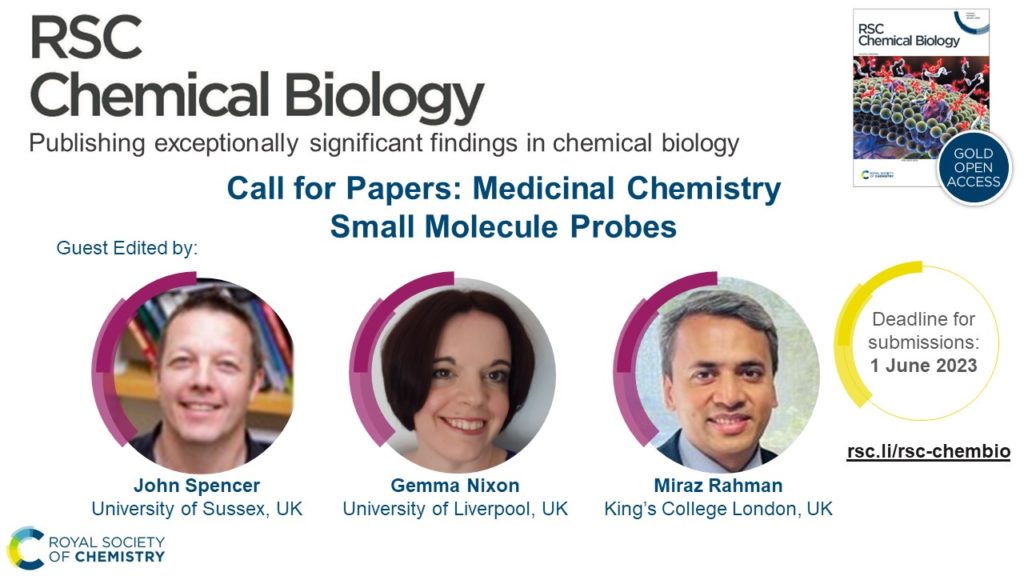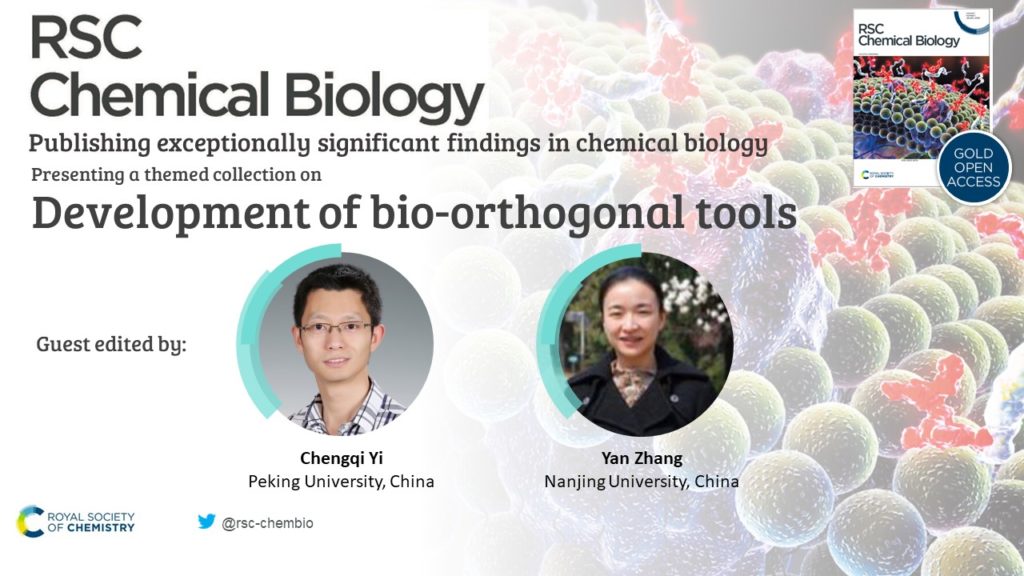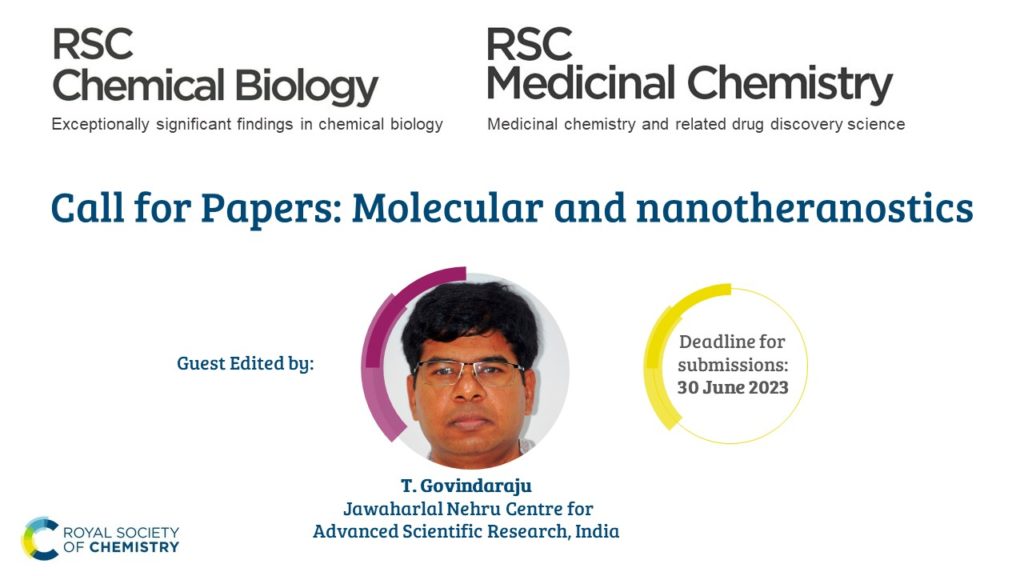About this article
The paper explores developing a chemical tool to label formyl peptide receptor 1 (FPR1) in cells. FPR1 is a sensor in the human innate immune system, which is our body’s ancient first-line response system to detect pathogens. FPR1 is found in our immune cells; it helps these cells move towards sites of infection by sensing peptides released from bacteria.
However, the role of FPR1 is not so simple. FPR1 has been reported in other cells, such as those lining our mucous membranes (gut, lungs etc.), where it presumably comes into contact with many of our friendly bacteria without causing widespread immune activation. This family of proteins (FPRs1-3) can recognise very different molecules, and how this occurs is only beginning to be explored. FPRs can also cause and suppress inflammation and have been linked to numerous diseases (cancer, autoimmune disease). However, it’s unclear how this occurs and how we might modulate it to treat diseases.
In this paper, we designed a tool to label or tag FPR1 with a dye so we can see this sensor on the surface of cells. Our tool also allows us to detect inhibitors that bind FPR1. A key feature of it, is that it permanently labels FPR1. We expect it will be useful to understand the fundamentals of FPR1 biology and explore how we can treat diseases through molecules that activate or repress this protein.
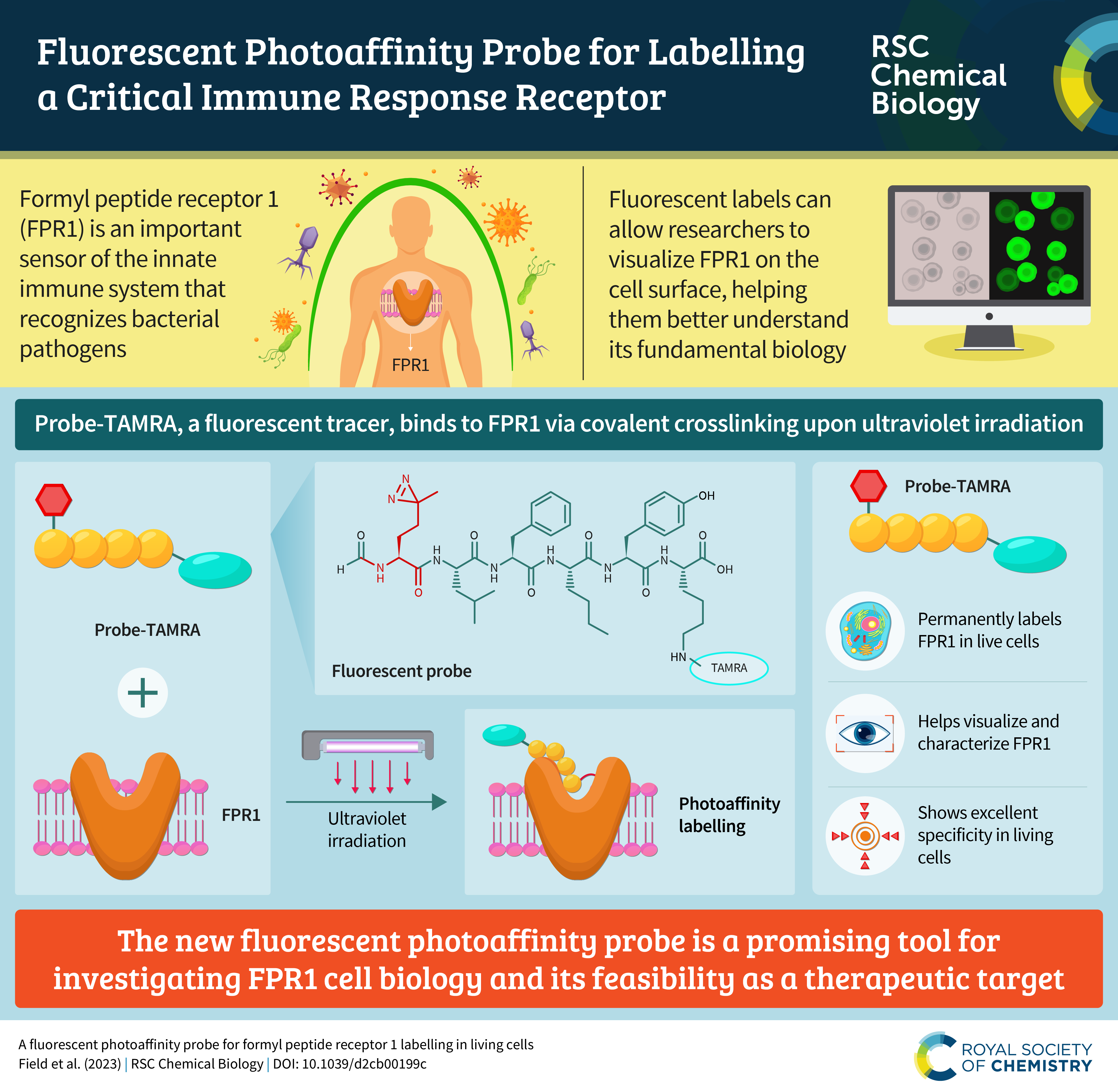
About RSC Chemical Biology
Led by Hiroaki Suga (University of Tokyo), RSC Chemical Biology is dedicated to publishing and disseminating the most exceptionally significant, breakthrough findings of interest to the chemical biology community. All submissions are handled by our experienced and internationally recognised Associate Editors. For more information on the journal, please visit the journal homepage.
As a gold open access journal, there are no barriers to accessing content and your research article will reach an international audience. Please note that the article processing charges are waived until mid-2022, so the journal is currently free to publish in.
RSC Chemical Biology is now indexed in the Directory of Open Access Journals (DOAJ), PubMed Central, Scopus and Web of Science: Emerging Sources Citation Index. Find out more about the journal and submit your work at rsc.li/rsc-chembio
Royal Society of Chemistry


